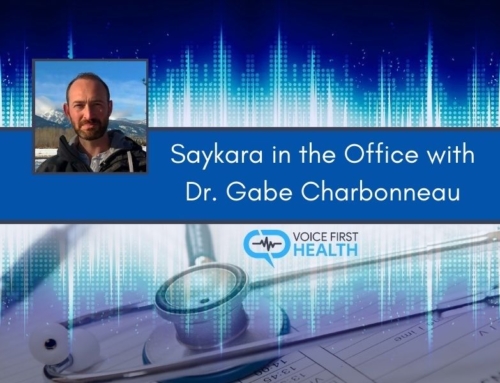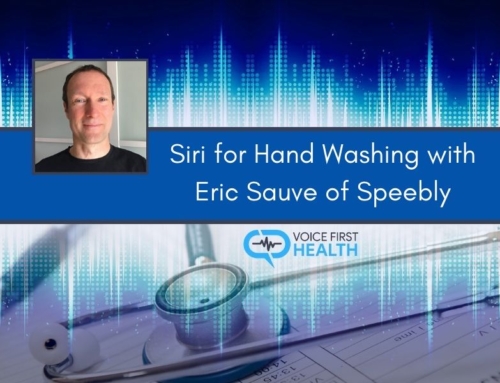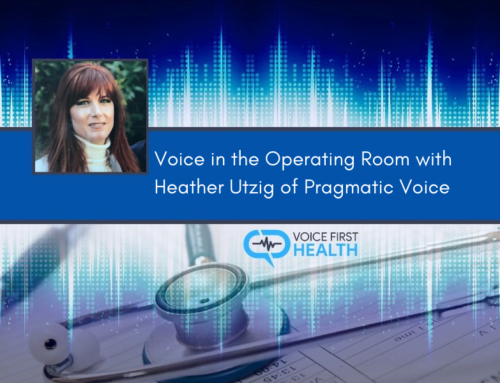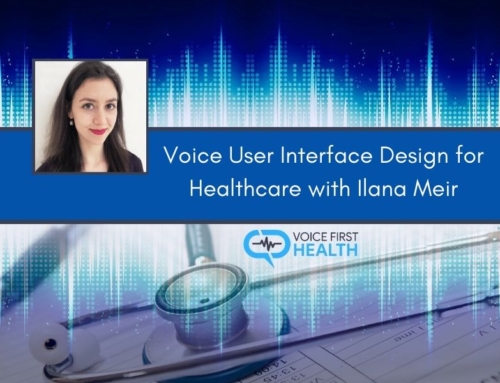VFH Episode 21
In this episode, Teri welcomes Stuart Patterson, the founder, and CEO of Lifepod.
Lifepod is a revolutionary new service that can best be thought of as “2-way Alexa for the elderly” which enables seniors to use their voice to live more comfortably and safely in their home by providing essential services such as news/weather updates, medication reminders, access to transport, control of smart-home appliances, and fall detection.
LifePod also offers the adult children and caregivers of these elders a powerful new way, using a mobile portal and AI based data from local IoT sensors, to monitor, keep in touch with, and support their elderly loved ones without having to be there in person.
Stuart is an experienced business leader who has led early/mid-stage ventures in a variety of markets including voice or virtual assistants, mobile/online apps and services, video content, speech recognition/synthesis, identity management, telephony services, and clean-tech solutions.
Key points from Stuart!
- The combination of voice technology with IoT devices to address the needs of the elderly aging in place is inexpensive and intuitive.
Lifepod
- Was invented by the serial inventor, Dennis Fountaine. Dennis invented the first wireless earpieces. He developed the first prototypes of Lifepod. He created it to be integrated with Alexa so that it could have the greatest impact.
- Stuart and his business partner bought out all the rights for Lifepod from Dennis.
- Lifepod uses Alexa and they are in talks with Google to incorporate Google Assistant. They did a demonstration with Samsung for their Bixby assistant.
- Lifepod uses voice technology to add a “virtual caregiver capability” to its service.
- Voice assistants use reactive voice modalities which enable them to react to what users ask them to do. Lifepod adds the concept of proactive voice which allows virtual assistants to speak to the user without being woken up and without being spoken to. Caregivers are able to schedule dialogues to speak throughout a day or week.
- Lifepod also invokes other skills, such as asking if you would like to listen to your favorite music or have Lifepod order an Uber for you.
- They focus more on the demographic that has been having difficulties using the reactive mode of voice assistants.
The Future
- They hope to develop technology that will enable Lifepod to detect whether a user is talking so as to avoid interrupting the user’s conversation or ask to be excused before talking or asking a question.
- They intend to incorporate presence detection technology so that Lifepod never speaks in an empty room.
- Smart speaker producers are working on incorporating multi-room capability.

Onboarding Users
- They preconfigure the Lifepod to make it as simple as possible to use for both the elderly users and caregivers.
- Caregivers are able to configure the Lifepod to meet the unique needs of each individual elderly user.
- Lifepod has three types of routines; wellness check-ins, social or other reminders, and other voice services (skill linking like giving the weather, or the news, etc.)
- A caregiver can configure wellness check-ins, such as “How are you feeling?” and if the user says they’re not feeling well, Lifepod asks, “Would you like your daughter/son or professional caregiver to contact you today?”
- They have a “capability of configurable alerts” feature within the check-ins and reminders which sends relevant text messages to caregivers’ phones.
Current Stage
- Lifepod is currently in beta testing. They have 20 prototypes and will soon have 200 beta Echo clones with the Lifepod name on them and the Lifepod firmware in them.
- They are beta testing with individual members of the public in Boston and California. They are involving companies and institutions like Boston’s Commonwealth Care Alliance where they have almost 50 beta devices in different patients’ homes.
- They are also doing smaller pilots with senior living facilities and home care agencies.
- They have a wait list and hope to be available to the public by April 2019.
- For some time they might only be available through institutional partners like Commonwealth Care Alliance.
What Voice First Health Means to Stuart
- He is always excited by the possibility that a caregiver can support and monitor their patient or parent from a distance, whether it’s a short or long distance.
Links and Resources in this Episode
Lifepod Website
Lifepod on Linkedin
Stuart’s Email – Stuart@Lifepod.com









